Episodes
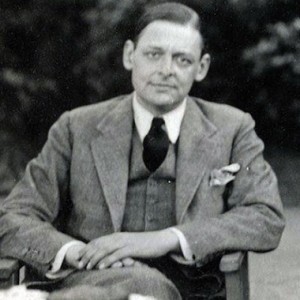
Tuesday May 14, 2019
T. S. Eliot and Life Beyond College with Dr. Glenn Arbery
Tuesday May 14, 2019
Tuesday May 14, 2019
In Wyoming Catholic College's humanities track, the last author our seniors read before graduation is poet T. S. Eliot.
While Geoffrey Chaucer in The Canterbury Tales extolled the loveliness of April when spring fills the earth with beauty and with great joy “people long to go on pilgrimages,” T. S. Eliot called April in our modern, secular age, “the cruelest month.” In his poem "The Waste Land," Eliot described the crowds of commuters with their backs turned to the glad pilgrim road to Canterbury as they slog into London for another work day.
Dr. Glenn Arbery, in addition to being our college president, has been teaching senior humanities. He is our guest this week on The After Dinner Scholar.
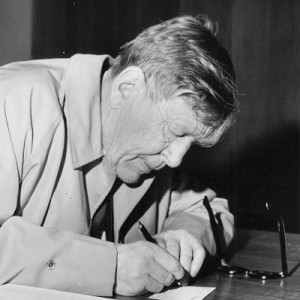
Tuesday Apr 16, 2019
The Grand Sweep of Western Civilization with Dr. Wilfred McClay
Tuesday Apr 16, 2019
Tuesday Apr 16, 2019
The one-semester undergraduate course's reading list included Augustine's Confessions, The Brothers Karamazov, Moby Dick, four Shakespeare plays, nine operas, and even more requiring about 6,000 pages of reading.
It was a course designed and taught by poet W. H. Auden at the University of Michigan in 1941. While the course is no longer one semester and the syllabus has undergone some revisions, the spirit of Auden lives on at the University of Oklahoma.
One of the professors behind the course is Dr. Wilfred McClay, the university's G. T. and Libby Blankenship Chair in the History of Liberty. Dr. McClay came to Wyoming Catholic College this past weekend to deliver a lecture and is our guest on this edition of The After Dinner Scholar.
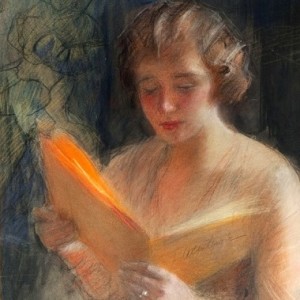
Tuesday Mar 12, 2019
Christian Fiction and the Rules of Subcreation with Mary Woods, Class of 2019
Tuesday Mar 12, 2019
Tuesday Mar 12, 2019
In the fall semester, Wyoming Catholic College seniors write theses and then in the spring semester all classes are canceled for three days as they present their research in the form of a public orations—thirty minutes of lecture followed by thirty minutes of question from a faculty panel and from their peers in the audience.
This and the next edition of The After Dinner Scholar will feature interviews with senior about their theses and orations.
Mary Woods is an aspiring novelist who entitled her thesis and oration “Law, the Soil of Story: Christian Fiction and the Rules of Subcreation.” Mary is our guest this week on The After Dinner Scholar.
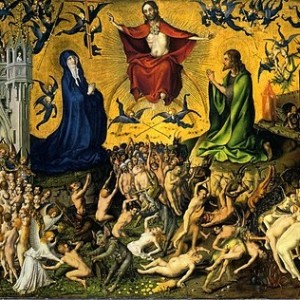
Tuesday Feb 19, 2019
Learning and the Dies Irae with Prof. Kyle Washut
Tuesday Feb 19, 2019
Tuesday Feb 19, 2019
The Dies Irae, a hymn from the 12th century, speaks about the second coming of Christ and the Judgment Day. In addition to that, the Latin text just happens correspond with the Latin Wyoming Catholic College sophomores are learning right now.
It is, in fact, a powerful and challenging combination of poetry, theology, spirituality, and Latin grammar.
Noticing all that, Prof. Kyle Washut and Prof. Eugene Hamilton integrated a bit of second year Latin with second year Trivium. Prof. Washut is our guest this week on The After Dinner Scholar
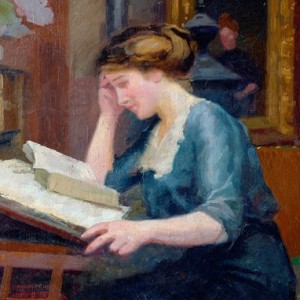
Tuesday Feb 12, 2019
Hard Texts and Charitable Reading with Dr. Tiffany Schubert
Tuesday Feb 12, 2019
Tuesday Feb 12, 2019
That nineteenth century German philosopher Friedrich Nietzsche’s point of view is incompatible with the vision, values, and mission of Wyoming Catholic College should come as no surprise to anyone. And the same can be said of thinkers such as Jean Jacque Rousseau, Sigmund Freud, Martin Heidegger, and Michel Foucault.
Yet Wyoming Catholic College students read all of them and more. And that makes sense since no one can understand our modern culture without confronting those thinkers.
Which brings up the question of how to read them—how to read any thinker with whom we disagree.
Dr. Tiffany Schubert has spent a long time thinking about how to read charitably, receiving even harsh and abrasive authors with kindness and sympathy.
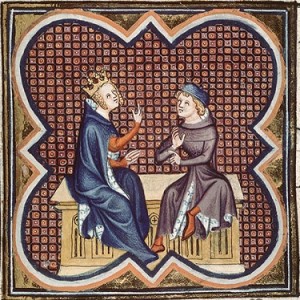
Tuesday Feb 05, 2019
The Medieval Mind of C. S. Lewis with Dr. Jason Baxter
Tuesday Feb 05, 2019
Tuesday Feb 05, 2019
Before C. S. Lewis was a novelist, spiritual writer, or Christian apologist, he was a scholar. Lewis served as a Fellow and Tutor in English Literature at Oxford University from 1925 until 1954 when he was made Chair of Medieval and Renaissance Literature at Cambridge University. That is Lewis’ primary calling was as a university professor and literary scholar.
His scholarly studies influenced all of Lewis’ writings from Narnia to the Space Trilogy from Screwtape to “The Weight of Glory” from The Abolition of Man to The Great Divorce and Till We Have Faces. Lewis’ popular books while speaking forcefully to our modern era are Medieval to the core.
Wyoming Catholic College Academic Dean Dr. Jason Baxter is, like Lewis, a student and scholar of Medieval and Renaissance literature. He has for years been reading over Lewis’s shoulder, studying the same books and authors.
This winter Dr. Baxter will be teaching a free distance learning course on “The Medieval Mind of C. S. Lewis.” To register, visit our website.
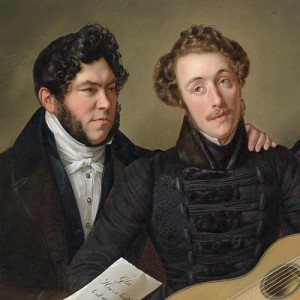
Tuesday Jan 15, 2019
The Gift of Friendship with Prof. Kyle Washut
Tuesday Jan 15, 2019
Tuesday Jan 15, 2019
“Life,” wrote the great Roman author Cicero, “is nothing without friendship.” And thus it has been since the beginning.
Looking at Adam alone in the splendor of Eden, God declared, “It is not good for the man to be alone” (Genesis 2:18). We humans are “hardwired to connect.” We need friends and without them, as St. Thomas Aquinas observed, “even the most agreeable pursuits become tedious.”
Yet in our day, loneliness has been called an epidemic and friendship a lost art. The results are not only poor psychological and social health, but, it has been clearly demonstrated, poor physical health as well.
Led by Wyoming Catholic College faculty, the 2019 Wyoming School of Catholic Thought will explore the meaning, the experience, and the practice of friendship “from The Iliad to Facebook”.
Prof. Kyle Washut was one of the Wyoming School faculty last year and will join us again this year. Prof. Washut is our guest this week on The After Dinner Scholar.
For more information about The Wyoming School of Catholic Thought, June 9-14, 2019, visit our website.
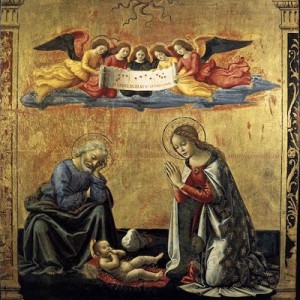
Tuesday Dec 25, 2018
Poetry for the Feast of Christmas with The Wyoming Catholic College Faculty
Tuesday Dec 25, 2018
Tuesday Dec 25, 2018
‘Twas the night before Christmas, when all through the house
not a creature was stirring, not even a mouse.
Those first lines from Clement Clarke Moore’s “A Visit from St. Nicholas” may be the most recognized line of Christmas poetry in America—or perhaps the most recognized line of any kind of poetry in America. Yet Christmas, Christ’s nativity has been the subject of many, many great poems.
As a Christmas gift to you our listeners, this Christmas podcast will focus on great Christmas poems—recited, not discussed by Wyoming Catholic College faculty. Enjoy.
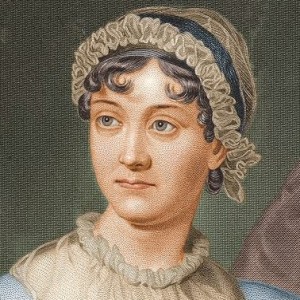
Tuesday Nov 27, 2018
Virtue, Happy Endings, and the Novels of Jane Austen with Dr. Tiffany Shubert
Tuesday Nov 27, 2018
Tuesday Nov 27, 2018
Happy endings have been standard fare in literature for millennia. Odysseus' trials finally bring him home to Ithika. Dante journeys through Hell to get there, but eventually he sees the Beatific Vision.
Later in literary history, Emma Woodhouse in Jane Austen's Emma and Elizabeth Bennett in her Pride and Prejudice suffer a variety of travails, failures, and setbacks, but in the end, they both fall in love, marry well, and their happiness is complete.
Unrealistic? Silly? Little more than one of those cheap romance novels for sale in airports? Or do happy endings in Jane Austen tell us something crucial about human nature, human desire, and the human condition?
Dr. Tiffany Shubert teaches humanities and the Trivium here at Wyoming Catholic College. Among her academic interests are the happy ending and the novels of Jane Austen. Dr. Shubert is our guest this week on The After Dinner Scholar.
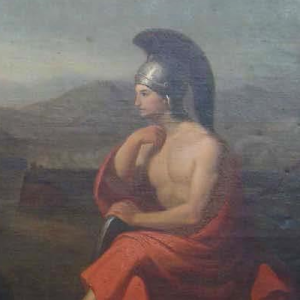
Tuesday Oct 30, 2018
Telemachus and the Birth of Wonder with Dr. Jason Baxter
Tuesday Oct 30, 2018
Tuesday Oct 30, 2018
"Tell me, Muse, of the man of many ways, who was driven / far journeys, after he sacked Troy's sacred citadel."
Those lines open Homer's epic poem The Odyssey. The story, they tell us, is about Odysseus, a great hero of the Trojan War. It's about his journeys and trials. Bracing stuff and we can't wait to get started. But Homer doesn't start. Not yet.
Instead after the exciting preview, the first four books of The Odyssey are not about the heroic Odysseus, but about his son, Telemachus who Dr. Jason Baxter describes as "adolescent, wimpy, insecure." That is, he's the polar opposite of his famous dad.
Yet it was to Telemachus that Dr. Baxter pointed to encourage our students here at Wyoming Catholic College. Dr. Baxter is our guest this week.

